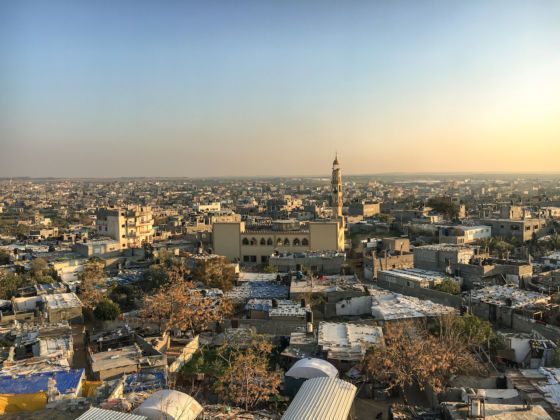Rising to greet me, Osama Abu Karsh, of Ramallah, squashed out his cigarette. In a minute, he’d light up another. Interviewing Palestinian nonviolence activists can be dangerous to your health. His ridiculously tiny table seemed purposely designed to inflict a mischievous intimacy on unsuspecting strangers.
All around us, in the Ambassador Hotel in East Jerusalem, up the hill from the walled city, young Americans and Europeans were involved in a lot of noisy backslapping. Abu Karsh sat without moving at all. He was the lobby’s still point. Was his aura of solitude the result of his years in prison? Slender, delicate-boned, he didn’t strike one as the political activist type, except maybe for the liquid intensity of his eyes.
